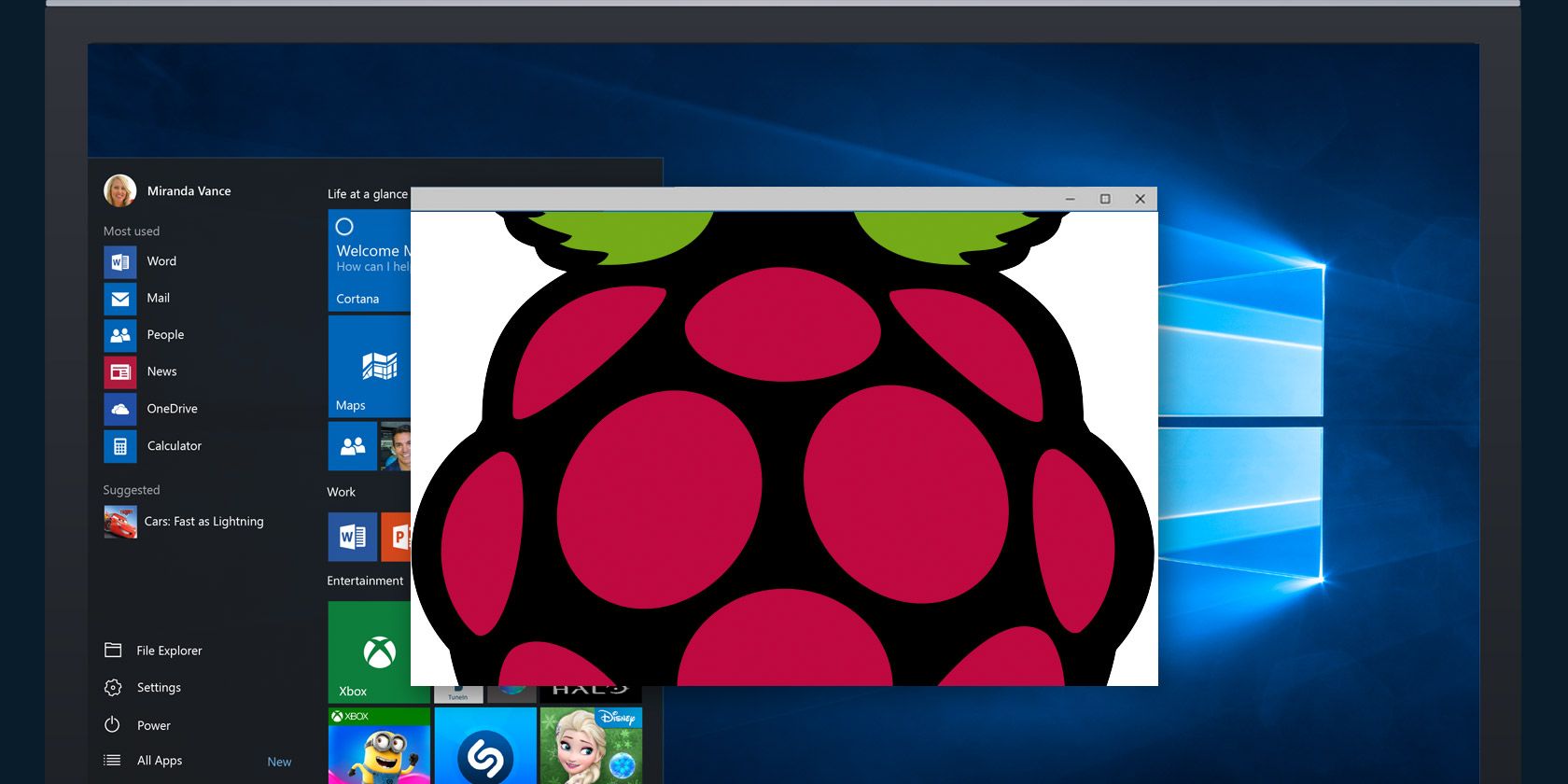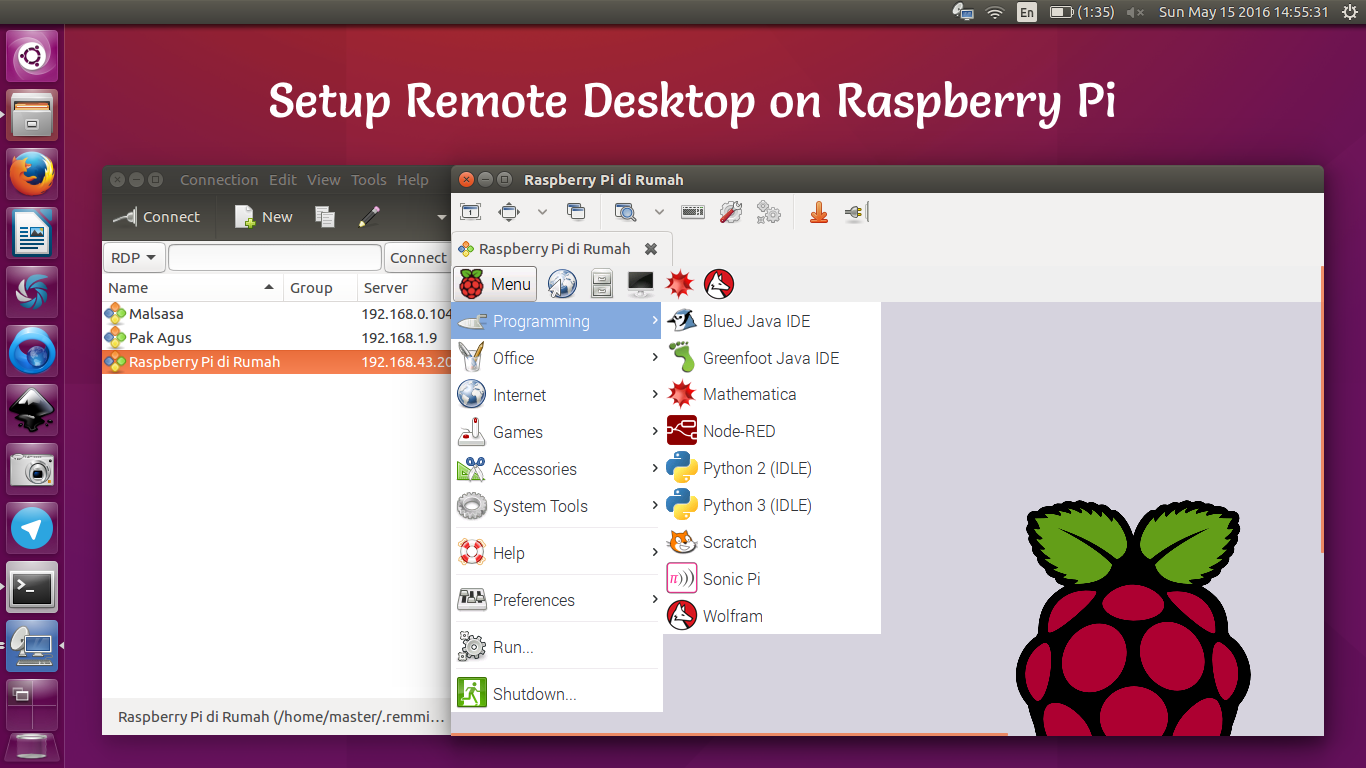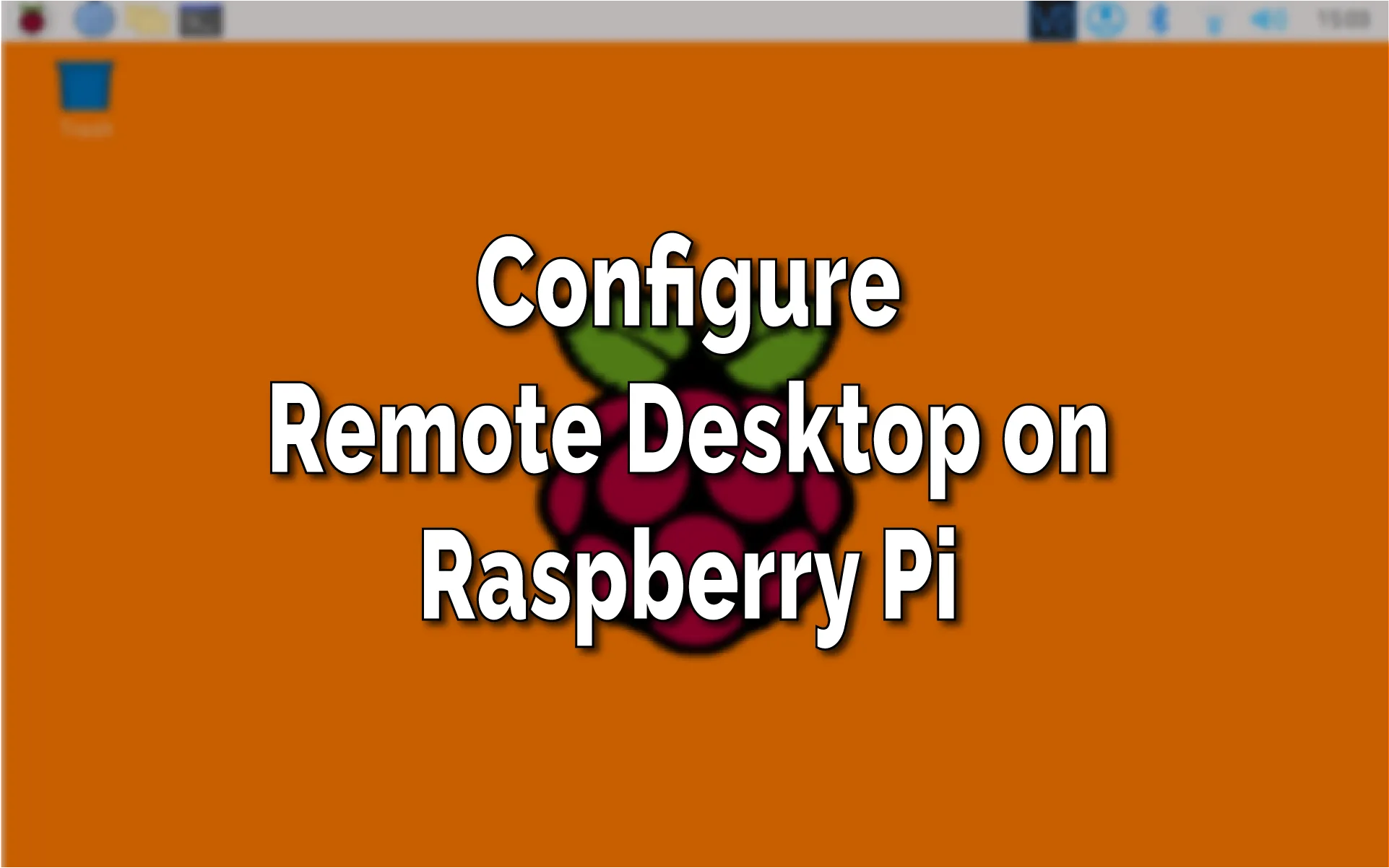Raspberry Pi Remote VPC: Your Affordable Path To Personal Cloud Computing
Have you ever considered having your very own little piece of the cloud, something just for you, accessible from anywhere? It's a pretty neat idea, that. Many folks, from big businesses to people just tinkering at home, really want to use computing resources that are not tied to one spot. This is where the whole concept of a Virtual Private Cloud, or VPC, comes into play, and it can seem like a big, expensive thing. However, what if you could build your own personal cloud space, a remote VPC, using something small, something quite affordable, like a Raspberry Pi? That sounds a bit different, doesn't it?
This idea of a Raspberry Pi remote VPC is rather interesting, because it brings powerful computing ideas right down to a very approachable level. You see, the Raspberry Pi is a tiny computer, one that makes learning about programming and building things quite easy for everybody, as a matter of fact. It’s a tool that helps people get started with computing, whether they are learning coding for kids, teenagers, or young adults. It helps you create games, animations, and more with code, too. So, using it for something like a personal cloud space just makes a lot of sense, in a way.
We are going to look at how a Raspberry Pi can become your very own remote VPC. We will explore why this little device, which is so good for fun, practical projects and learning, can also be a great fit for your own private, accessible computing area. It is a way to get started with your Raspberry Pi computer for free, and it offers a lot of possibilities for those who want to write powerful programs and build exciting physical computing projects, as I was saying.
Table of Contents
- What is a Raspberry Pi Remote VPC?
- Setting Up Your Raspberry Pi for Remote Access
- What Can You Do with It?
- Making Sure It Is Secure
- Common Questions About Raspberry Pi Remote VPC
- Getting Started with Your Own Remote VPC
What is a Raspberry Pi Remote VPC?
Let's get a good grasp on what we mean when we talk about a "Raspberry Pi remote VPC." It's a concept that joins two rather different things: the tiny, affordable Raspberry Pi computer and the idea of a Virtual Private Cloud. Basically, it is about making your little Pi accessible and useful from anywhere you might be, giving you a private computing space that you control, you know.
The Idea of a Virtual Private Cloud
A Virtual Private Cloud, or VPC, is pretty much what it sounds like. It is a private section of a public cloud, a part of a larger network that is set aside just for you. Think of it like renting an apartment in a big building; you get your own space, your own rules, even though you are part of a bigger structure. Companies use VPCs for security and to keep their important stuff separate. It gives them control over their network settings, like IP addresses and subnets, and helps keep things safe. So, it is a way to get your own secure spot in a shared computing environment, more or less.
Why a Raspberry Pi for This?
Now, why would you pick a Raspberry Pi for something like this? Well, the Raspberry Pi, created by the Raspberry Pi Foundation, makes computing accessible and affordable for everybody. It is a tiny and affordable computer, which is a big part of its appeal. Raspberry Pi models lack onboard storage, so you have to supply it, but you can boot your Raspberry Pi from an operating system image installed on any supported media. This means you have a lot of freedom. It is a very low-cost piece of equipment, and it uses very little electricity. This makes it a great choice for something you want to run all the time, like a personal server. It is also quite small, so it does not take up much room. You can learn more about Raspberry Pi's mission on our site, and see how it helps people worldwide.
It also offers a lot of flexibility. You can install different operating systems on it and set up all sorts of software. This means you can shape your "personal cloud" exactly how you want it, which is rather nice. It is about having control and being able to experiment without spending a lot of money. The Raspberry Pi Foundation provides access to online coding resources and challenges that are free for everyone anywhere, too. This focus on accessibility and learning is a big reason why it is a good fit for this kind of project, in some respects.
Setting Up Your Raspberry Pi for Remote Access
Getting your Raspberry Pi ready to be a remote VPC involves a few steps. It is not overly complicated, but it does require some thought and a bit of setting up. The good news is that there are many free resources to teach, learn, and make with Raspberry Pi, a tiny and affordable computer, as a matter of fact. This means you have a lot of help available.
Getting Your Pi Ready
First, you will need a Raspberry Pi model, of course, and a way to store its operating system. Since Raspberry Pi models lack onboard storage, you will need a good quality SD card or a fast USB drive. You boot your Raspberry Pi from an operating system image installed on any supported media. Installing the operating system is the very first thing you do. There are many guides online for this, and the Raspberry Pi Foundation offers a lot of help. You will want to choose a lightweight operating system, something that runs well on the Pi's resources. A popular choice is Raspberry Pi OS Lite, which does not have a graphical desktop, making it very efficient, you know.
Once the operating system is on, you will need to get it connected to your home network. This can be done with an Ethernet cable or Wi-Fi. Then, you will need to update all the software to make sure everything is current. This helps keep things running smoothly and securely. It is a fairly straightforward process, honestly, just a few commands in the terminal.
Connecting from Afar
To access your Raspberry Pi from outside your home network, you will need to set up a way for it to be reached. One common method is using a Virtual Private Network, or VPN, server directly on the Pi. This creates a secure connection to your home network, and then you can access your Pi as if you were sitting right next to it. It is a very secure way to do things, usually.
Another option involves setting up port forwarding on your home router. This tells your router to send specific types of incoming connections directly to your Raspberry Pi. This method can be a bit less secure if not done carefully, so you need to be aware of the risks. There are also services that can help you create a secure tunnel to your Pi without needing complex router setups, which might be easier for some people. You can find more details about various remote access methods here. Remember, security is a big deal when you open up your home network to the outside, you know.
What Can You Do with It?
Once you have your Raspberry Pi set up as a remote VPC, the possibilities are quite exciting. It is not just a little computer anymore; it is your personal server, ready to do things for you from anywhere. This is where the fun, practical projects really start to come alive, actually.
Personal File Storage
One of the most common uses for a remote Raspberry Pi is as a personal file server. You can attach a USB hard drive to your Pi and set up software that lets you access your files securely over the internet. This means you can have your own private cloud storage, similar to services like Dropbox or Google Drive, but you own all the hardware and control all the data. It is a great way to keep your important documents, photos, and videos safe and accessible without relying on a third party. So, it is pretty much your own personal data vault, accessible from anywhere, too.
Hosting Small Applications
The Raspberry Pi is quite capable of running small web applications or services. You could host a personal blog, a simple website, or even a small database for a project. For example, if you are learning programming through fun, practical projects, you could develop a small web app and host it on your Pi. This gives you real-world experience in deploying software, which is invaluable. It is not going to run a massive, high-traffic website, but for personal use or small community projects, it is very good, really.
Learning and Experimenting
Perhaps the biggest benefit of a Raspberry Pi remote VPC is the opportunity for learning. It is a sandbox where you can experiment with network configurations, server software, and cloud concepts without any real cost barriers. You can try out different operating systems, set up various services, and learn about network security in a hands-on way. The Raspberry Pi Foundation helps people learn coding for kids, teenagers, and young adults, and this kind of project fits right in with that goal. It is a practical way to understand how remote computing works, and it is pretty much a free resource to teach yourself, you know.
Making Sure It Is Secure
When you make your Raspberry Pi accessible from the internet, security becomes a very important thing. You are, in a way, opening a door to your home network, so you want to make sure only the right people can come through. This is not something to take lightly. There are a few key things you should do to keep your remote VPC safe. First, always use strong, unique passwords. Do not use easy-to-guess ones, and do not reuse passwords from other accounts, either. This is a very basic but very important step, usually.
Second, keep your Raspberry Pi's software updated. Regularly check for and install updates for the operating system and any programs you are running. These updates often include fixes for security weaknesses. Third, consider using a VPN for all your remote connections. A VPN encrypts your data, making it much harder for anyone to snoop on what you are doing. It is a much safer way to connect than just opening up ports directly. Fourth, limit what your Pi can do. Only install the software you absolutely need, and turn off any services that you are not using. The less stuff running, the fewer places there are for someone to try and get in. It is about reducing the number of ways someone might try to get access, you know. Finally, consider setting up a firewall on your Pi. This controls what kind of network traffic can come in and go out, giving you another layer of protection. These steps help make your personal cloud space much more robust and safe, honestly.
Common Questions About Raspberry Pi Remote VPC
People often have questions when they first think about using a Raspberry Pi for something like a remote VPC. It is a pretty new idea for many, so that makes sense, in a way. Here are some answers to things people often wonder about.
Can a Raspberry Pi act as a server?
Yes, absolutely! The Raspberry Pi is, at its heart, a small computer, and it is perfectly capable of acting as a server. Many people use them for home servers, media servers, or even small web servers. It is not going to handle the traffic of a huge website, but for personal use, a small business, or a home project, it is very good. It can manage tasks like file sharing, running small applications, and even some light cloud computing work. So, it is definitely up to the task, you know.
What is a VPC and why would I need one?
A VPC, or Virtual Private Cloud, is a private, isolated part of a larger cloud network. Think of it as your own secure section within a shared computing space. You might need one for several reasons. For businesses, it is about keeping data separate and secure, and having control over their network settings. For individuals, a "personal" VPC, like one on a Raspberry Pi, means you get your own private computing space that you can access from anywhere. It gives you control over your files and applications, and it is a way to learn about networking and cloud concepts without paying for expensive services. It is about having your own digital spot, basically.
Is a Raspberry Pi powerful enough for cloud tasks?
For certain cloud tasks, yes, a Raspberry Pi is surprisingly capable. It is important to manage your expectations, though. It will not replace a powerful commercial cloud server that handles thousands of users. However, for personal file storage, running a small website, hosting a simple application, or even doing some light data processing, it is quite sufficient. Its low power consumption and small size make it a good choice for tasks that need to run constantly but do not require massive computing power. It is about smart use of a small but mighty device, you know. The Raspberry Pi Foundation, a UK registered charity, makes these devices accessible, which helps people try out these kinds of projects.
Getting Started with Your Own Remote VPC
Building your own Raspberry Pi remote VPC is a really rewarding project. It is a practical way to learn about networking, server management, and cloud computing, all with a very low initial cost. The Raspberry Pi Foundation makes computing accessible and affordable for everybody, and this project truly shows that. You can boot your Raspberry Pi from an operating system image installed on any supported media, which means you have a lot of freedom in how you set it up. It is a wonderful way to get started with your Raspberry Pi computer for free, too.
Think about what you want to achieve with your personal cloud. Do you want to store files? Host a small website? Or just have a place to experiment with code? Knowing your goals will help you choose the right software and setup. Remember, the global Raspberry Pi community is a great resource if you get stuck or need ideas. You can join them and ask questions, which is really helpful. The Raspberry Pi Foundation provides access to online coding resources and challenges that are free for everyone anywhere, so you have plenty of support. This whole process is about learning and creating, and it is quite an exciting journey, honestly. You can learn more about computer coding for kids, teenagers and young adults on our site, and see how the Raspberry Pi makes it easy to create games, animations, and more with code.

How to Run a Remote Desktop on Raspberry Pi with VNC

How to Setup Raspberry Pi Remote Desktop (5 Methods)

How to Configure Remote Desktop on Raspberry Pi? - TechSphinx